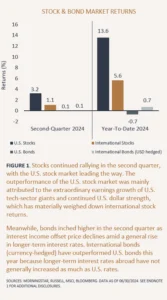Introduction
The housing market is one of the most influential sectors of the U.S. economy, affecting everything from consumer spending to interest rates and employment. Whether the market is booming with rising home prices or experiencing a downturn with declining demand, its ripple effects can be felt across various industries. As we navigate through 2025, the question remains: Is the housing market boom (or bust) helping or hurting the broader economy?
The Impact of a Housing Market Boom
When the housing market is booming, home prices rise, and demand for real estate skyrockets. This trend can have significant economic benefits:
- Increased Consumer Wealth – Rising home values boost homeowner equity, leading to increased spending and confidence in the economy.
- Construction Industry Growth – Higher demand for new homes fuels construction jobs, benefiting contractors, suppliers, and real estate developers.
- Higher Government Revenues – Property taxes rise alongside home values, increasing revenues for local governments, which can be reinvested in infrastructure and public services.
- Mortgage and Lending Expansion – Banks and financial institutions see greater demand for home loans, leading to increased profitability and economic activity.
The Consequences of a Housing Market Bust
A downturn in the housing market can have wide-reaching consequences, leading to economic instability and financial uncertainty:
- Reduced Consumer Spending – Falling home prices erode homeowner wealth, leading to lower consumer confidence and reduced discretionary spending.
- Construction Slowdown – A cooling market can lead to layoffs in the construction sector, negatively impacting employment rates.
- Financial Market Instability – Declining home values and mortgage defaults can lead to stress in the banking sector, affecting credit availability.
- Lower Government Revenue – Decreased property values lead to lower tax revenues, potentially resulting in budget cuts and reduced public services.
Key Factors Influencing the Housing Market
Several economic factors dictate whether the market trends toward a boom or bust:
- Interest Rates – The Federal Reserve’s policies on interest rates impact mortgage affordability, influencing home sales and prices.
- Supply and Demand – Housing shortages in high-demand areas drive up prices, while oversupply can lead to market corrections.
- Economic Conditions – Employment rates, wage growth, and inflation all play crucial roles in home affordability and buyer sentiment.
- Government Policies – Tax incentives, zoning laws, and stimulus measures can either encourage or deter housing market activity.
Looking Ahead: What’s Next for the Housing Market?
As we move forward in 2025, the housing market remains a crucial economic indicator. While some regions experience sustained price increases due to limited housing supply, others may see corrections due to rising interest rates and affordability challenges. Understanding these dynamics can help businesses, policymakers, and consumers make informed decisions in an ever-changing economic landscape.
Conclusion
The housing market plays a vital role in shaping the U.S. economy, whether it is booming or experiencing a downturn. A thriving market supports consumer wealth, job creation, and government revenues, while a slowdown can lead to financial instability and economic contraction. Keeping an eye on key indicators will be essential in predicting future trends and navigating the opportunities and challenges that lie ahead.





